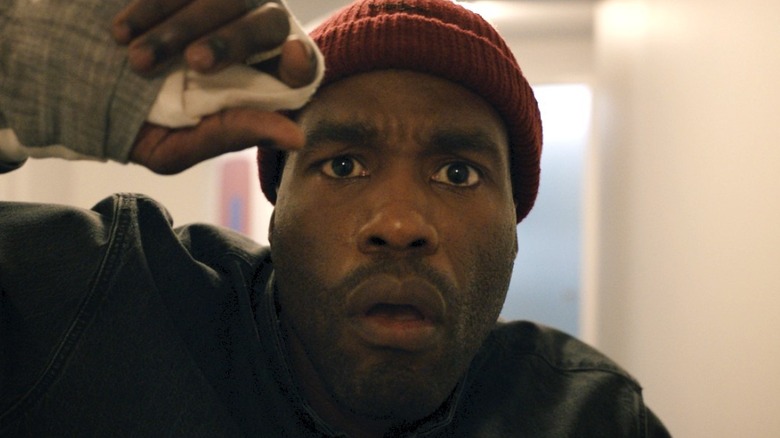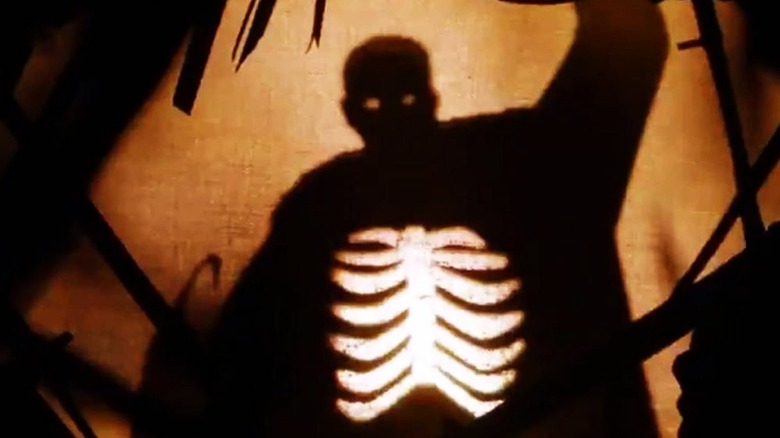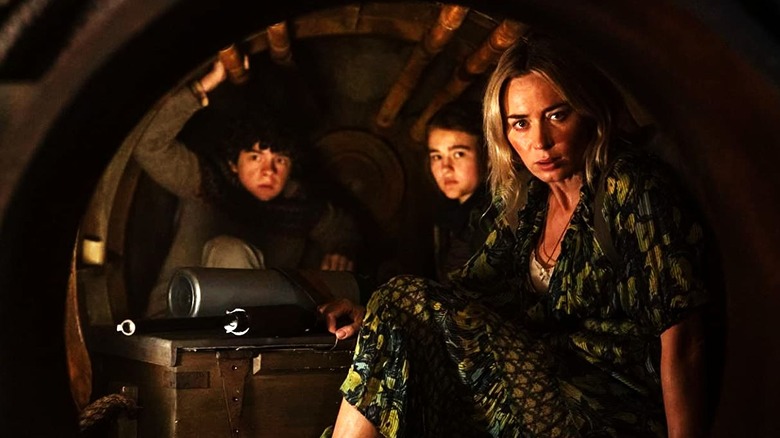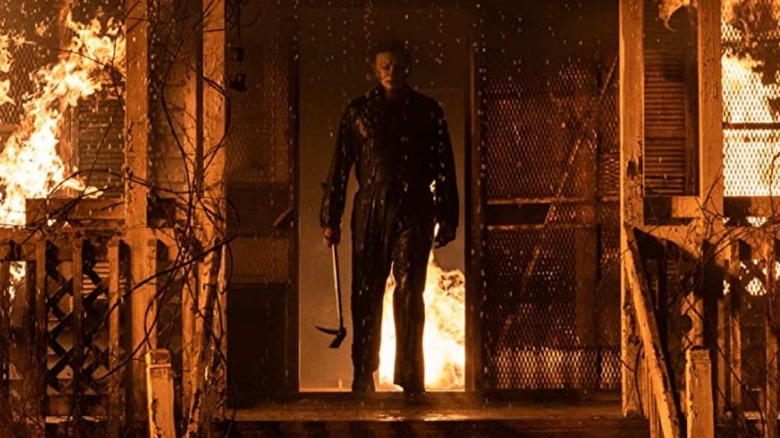The Real Reason Why Horror Movies Are Still Killing It At The Box Office
The horror movie genre has generally been a profitable asset for studios throughout movie history because they consistently draw big audiences. Simply put, viewers like to be scared, but only when they can emerge from a darkened theater and say to themselves, "It's only a movie."
However, the real reason studios keep making or distributing horror movies is because those big audiences help create large profit margins. Budgets have traditionally been lower on horror films than most other genres in showbiz, and once in a while a micro-budgeted movie comes along that transforms the industry. Perhaps the best example of that is "The Blair Witch Project," a supernatural thriller that earned more than $248 million worldwide against a $60,000 budget (via Box Office Mojo). The film essentially created the found-footage movie genre, and as such, spawned countless, low-budget imitators.
Unfortunately, the COVID-19 pandemic began wreaking havoc on the box office in early 2020, with many theater chains shutting down for months. And while films are starting to see a comeback with new releases opening in theaters again at a fairly consistent clip, business overall is still a mere shadow of it was before the pandemic. If there's one saving grace, the appetite still seems to exist for horror movies in theaters, which was proven once again with the release of producer Jordan Peele's new iteration of "Candyman."
Candyman is all but guaranteed to be a hit after its big opening
Despite the highly contagious Delta variant leading to a spike in COVID cases, audiences braved the threat to see "Candyman" during its opening weekend. By all indicators the opening was a massive success, taking in more than $27 million in worldwide ticket sales against an estimated $25 million budget (via CNBC). Unless theater owners surprisingly close their doors again, the Nia DaCosta-directed horror thriller is certain to be a hit.
"Horror movies are an accountant's, and studio executive's, dream with a huge upside of profit potential due to their inherent cost effectiveness; you don't need to break the bank to make a killer scary movie and the box-office results for the genre — particularly during the pandemic — have been most impressive," Paul Dergarabedian, senior media analyst at Comscore, told CNBC.
On the flip side, big budget films continue to struggle, even in normally bankable genres. CNBC said the budget of director James Gunn's supervillain movie "The Suicide Squad" had a production budget of $185 million, but has only grossed $154.5 million in theaters to date (the film also debuted on HBO Max the same day). On the superhero side, Disney and Marvel Studio's "Black Widow" has made $370 million worldwide against a $200 million production budget and $100 million marketing budget. Exacerbating that situation, of course, is star Scarlett Johansson's lawsuit against Disney, claiming the film's simultaneous release on the Disney+ streaming service caused her tens of millions of dollars in profit earnings. So far, Disney has only reported that it made $60 million from the film's opening weekend from the film's Premier Access option on Disney+.
A Quiet Place II and The Conjuring 3 were also worldwide hits
"Candyman" is the latest in the trend of horror movies during the pandemic that making a killing at the box office. Released in May, "A Quiet Place Part II" has gone on to gross more than $296 million worldwide against its $22 million budget, while "The Conjuring: The Devil Made Me Do It," made for an estimated $40 million, has rung up nearly $202 million in global ticket sales.
Like before, the main reason horror films are attracting huge numbers appears to be that audiences love the communal experience of being scared. "The movie theater experience is tailor-made for horror movie viewing and thus the relationship between theatrical exhibition and this most consistent, and indeed profitable, of genres will continue for as long as audiences are excited about being scared in a darkened room with a bunch of strangers," Dergarabedian told CNBC.
Will Halloween Kills also make a killing?
With four months to go in 2021, more horror films are poised to join the ranks of this year's hit movies. Chief among them is "Halloween Kills," due to arrive in theaters on October 15. Already delayed a year because of the pandemic, "Halloween Kills" is the first of two sequels based on director David Gordon Green's "Halloween" reboot from 2018. The final film in the reboot series, "Halloween Ends," is currently set to be released October 14, 2022.
Starring Jamie Lee Curtis in a reprisal of her character of Laurie Strode from the 1978 version of "Halloween," the reboot was, as expected, a monster hit. Released a couple of weeks before Halloween in October of 2018, "Halloween" grossed more than $255 million against a paltry $10 million budget. If the "Halloween Kills" budget is anywhere similar to the amount its predecessor was made for, look for the film to join the list of horror movie blockbusters in 2021.



